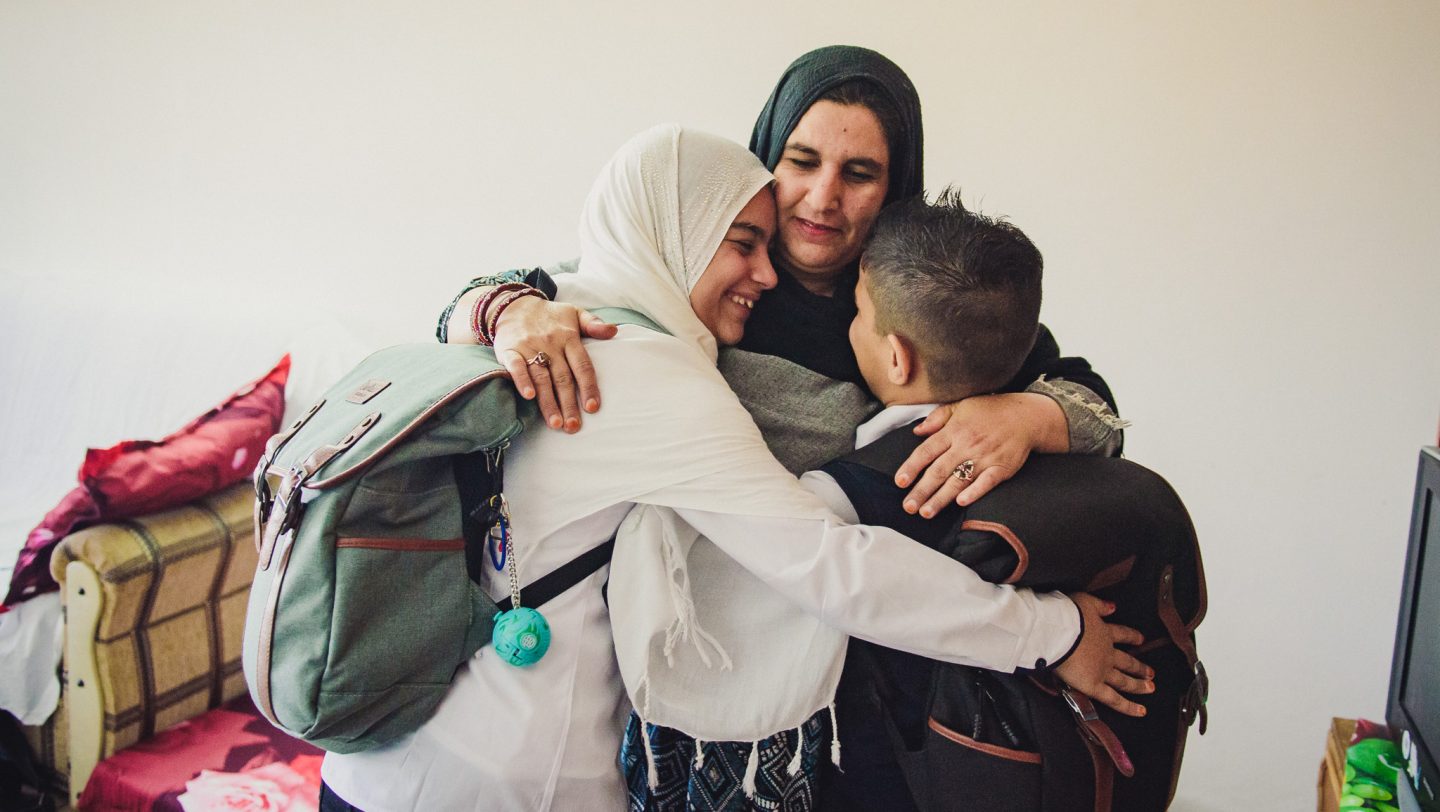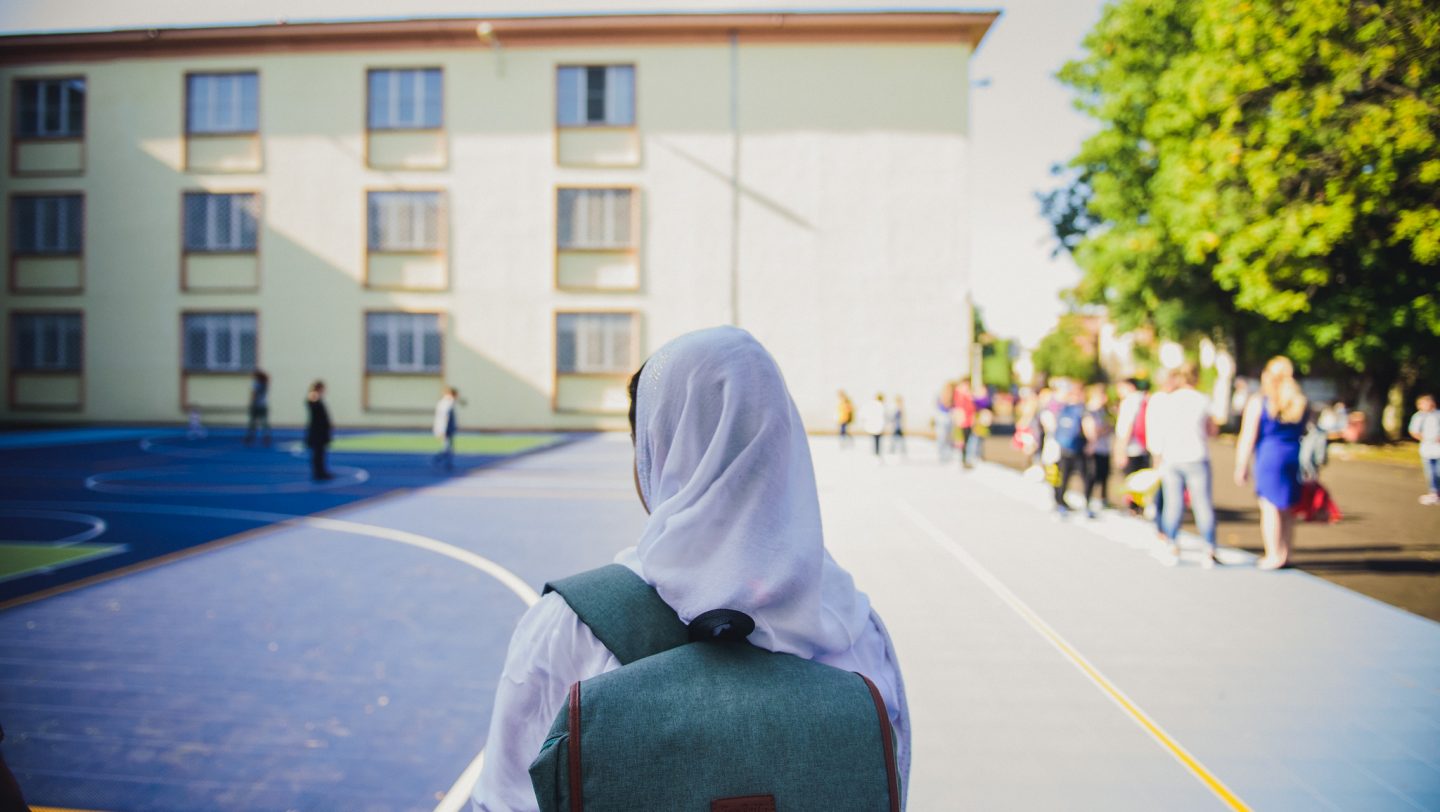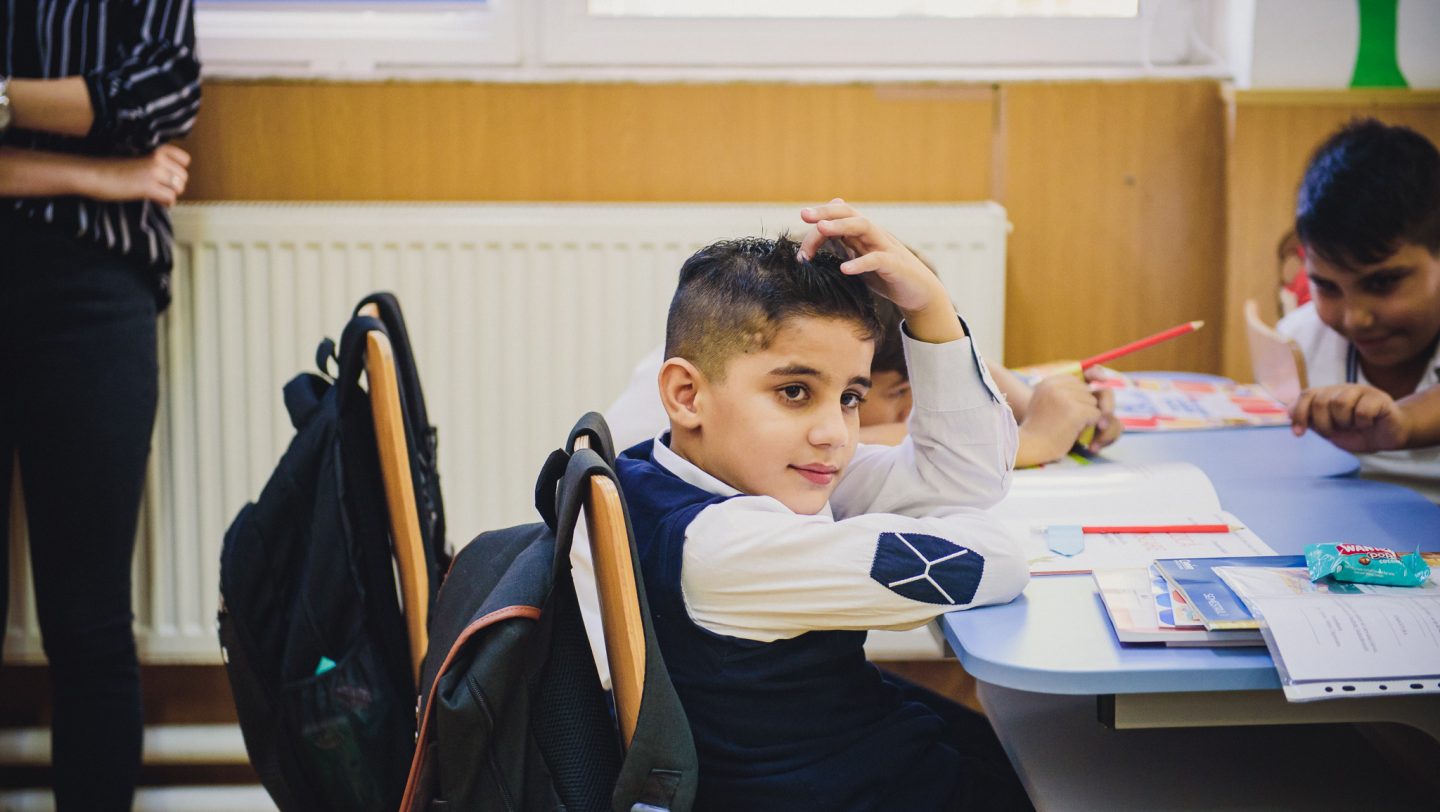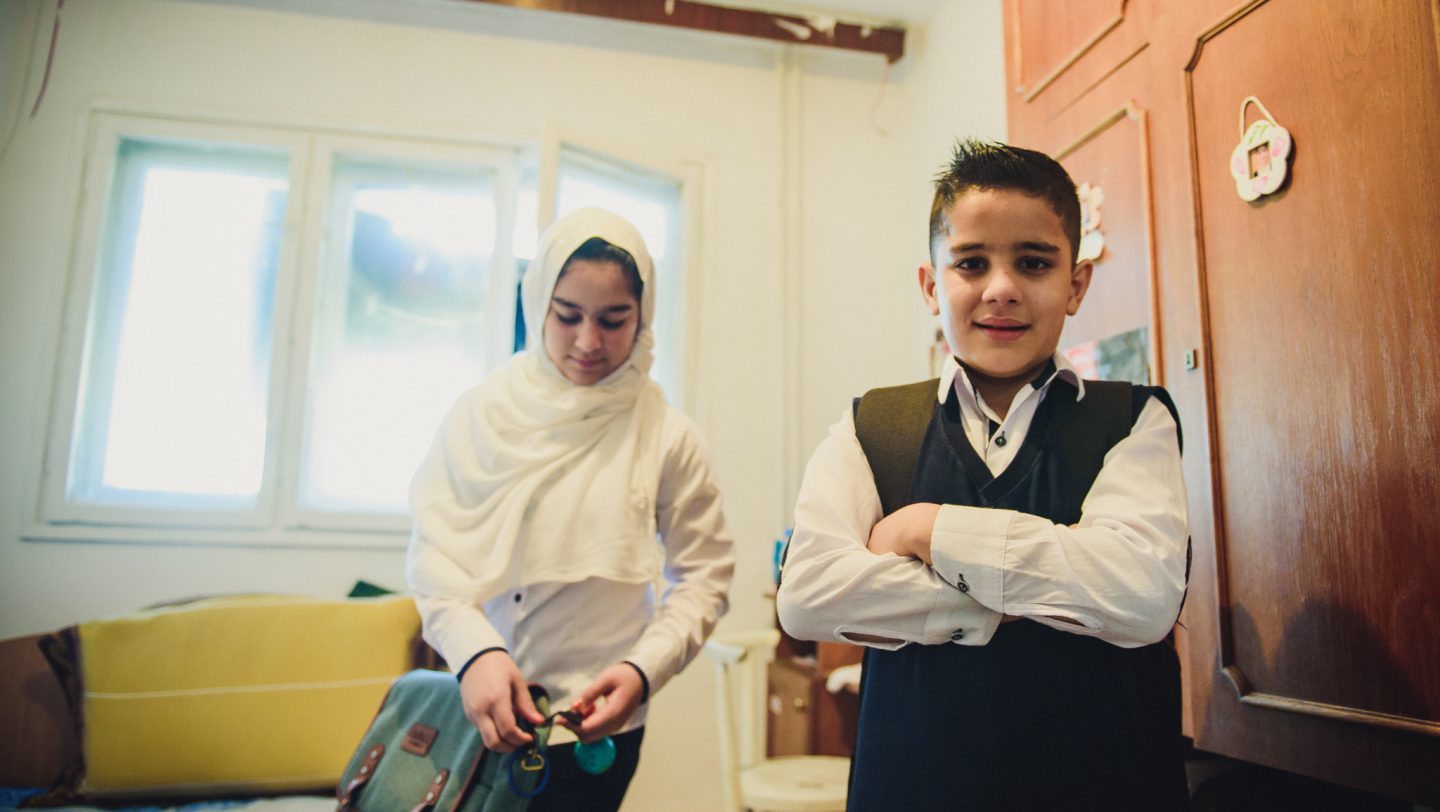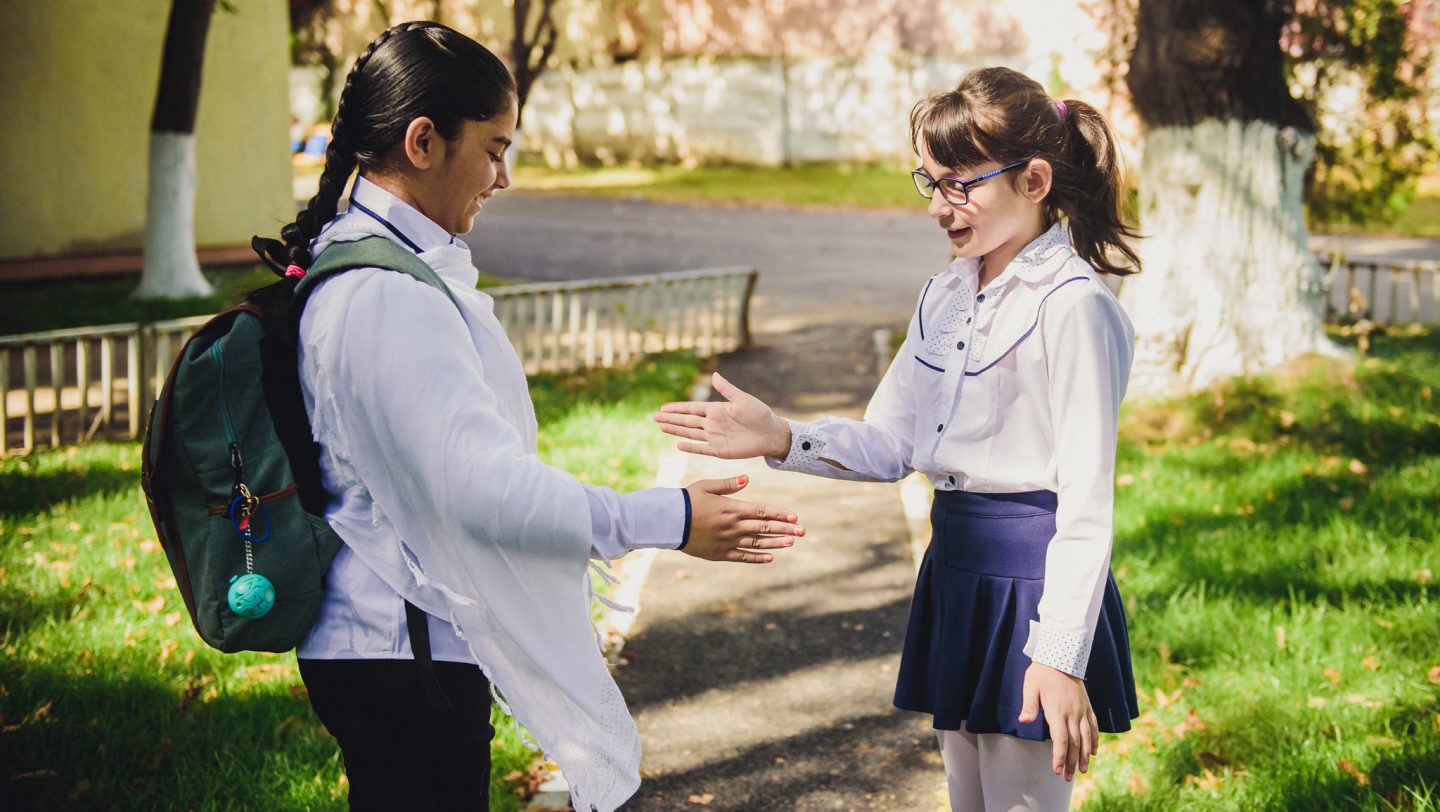Afghan refugees among flocks of happy kids on first day at school in Romania
Bashir Khan from Afghanistan is glad to see his children getting a better education than he did thanks to their enrollment in a school in Bucharest.
It is the first day of school in Bucharest’s Colentina district and from the houses and apartment blocks children of all ages are flocking to class. Among them are Rozina and Naveed Khan, aged 11 and 10, refugees from Afghanistan. Excitedly, they meet up with friends they have missed over summer.
Both Rozina and Naveed love school. “When I grow up, I want to be a doctor,” says Rozina. “Me too,” says her brother. Luckily they have educational opportunities that other members of the family have missed.
Their father, Bashir Khan, came to Romania in 2012. After living here for four years, he was able to bring his family to join him, through the family reunification procedure. His wife and five children are now living in Bucharest but only Rozina and Naveed, the youngest, are attending school. As the other sons are all over 18, they have to go out and earn a living.
Mr. Khan knows only too well what a handicap it is to lack education. He only got two years of schooling in Afghanistan before war broke out and afterwards had no opportunities to catch up on his studies. At 39, he can neither read nor write in his native Pashto, let alone in Romanian. He depends on Rozina and Naveed to help him read invoices and official documents.
The children love going to school and have very good grades. They are very well raised and Mr. Bashir is a very committed parent.
“School is very important. Education opens your eyes, helps you live a better life. I can’t read a word. I can’t write my name. What kind of life is this?” he asks as he helps his two youngest get ready for school. “I was ready to sacrifice anything to give them an education.”
Mr. Khan made a tremendous effort to enroll Rozina and Naveed in a Romanian school. Advisors from the Romanian National Council for Refugees helped him to navigate the considerable bureaucracy. “They accompanied me here and there and showed me how to deal with the paperwork,” he recalls.
This year, Rozina and Naveed are both starting second grade. In the school yard, the opening ceremony is about to start. They chat with their friends, speaking fluent Romanian. They meet their new teacher, Serban Ungureanu, who is just starting his career at the age of 19.
They will never know the limitations of a life where you can’t write your own name.
The school principal, Mihaela Stoian, has only praise for the Khan family. “The children love going to school and have very good grades. They are very well raised and Mr. Bashir is a very committed parent. He attends all the parent-teacher meetings.”
In the small, green school yard, Rozina plays clapping games with her friend Rebeca, whom she knows from the neighborhood and who is now going to be her desk mate. They don’t share the same cultural background but when they play together, they seem to have been friends forever.
Mr. Khan watches his two children proudly. They will never know the limitations of a life where you can’t write your own name.
According to the latest UNHCR Report on Education, of the 7.1 million refugee children of school age, 3.7 – more than half – do not go to school. As refugee children grow older, the barriers preventing them from accessing education become harder to overcome: only 63 per cent of refugee children go to primary school, compared to 91 per cent globally.
Share on Facebook Share on Twitter

